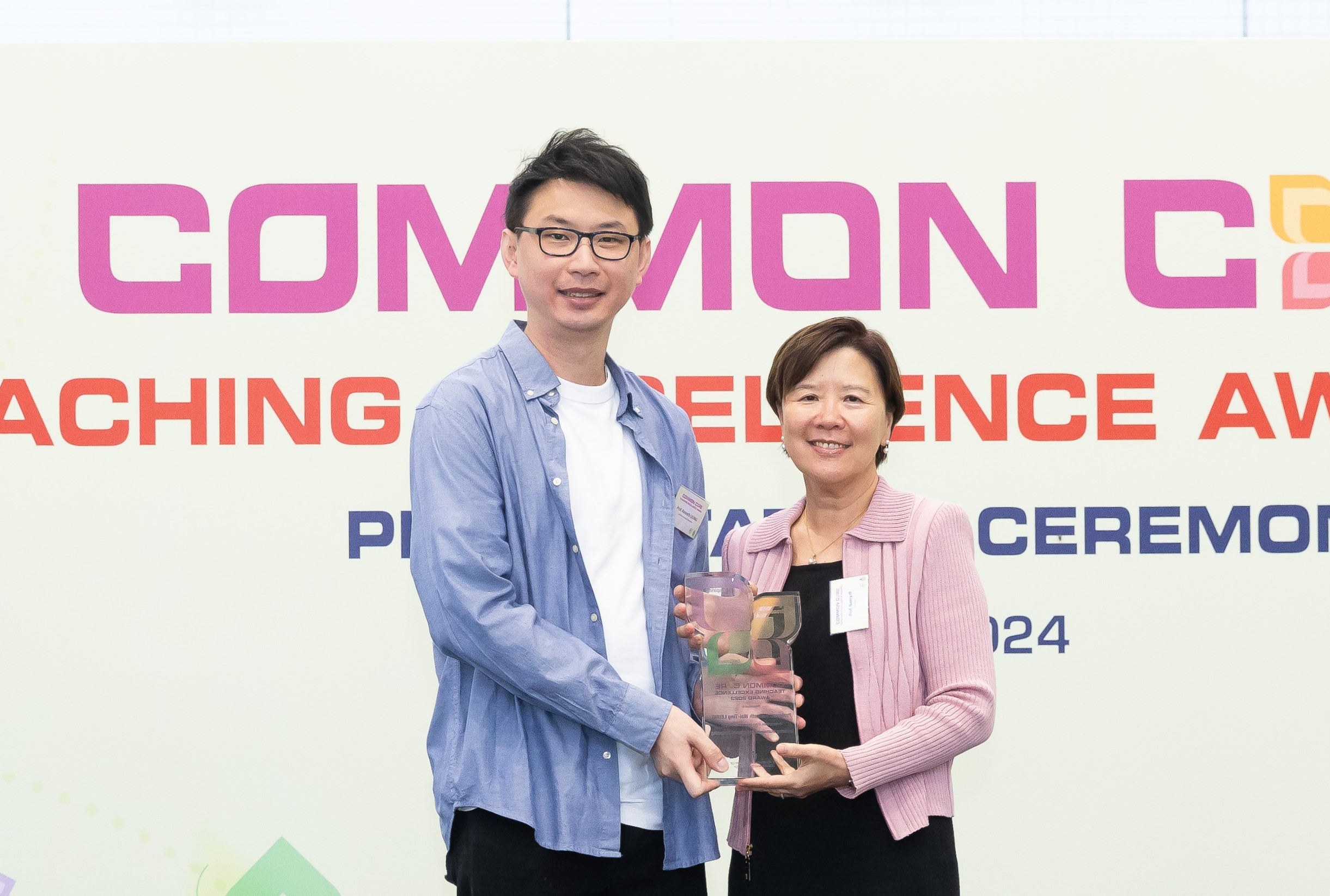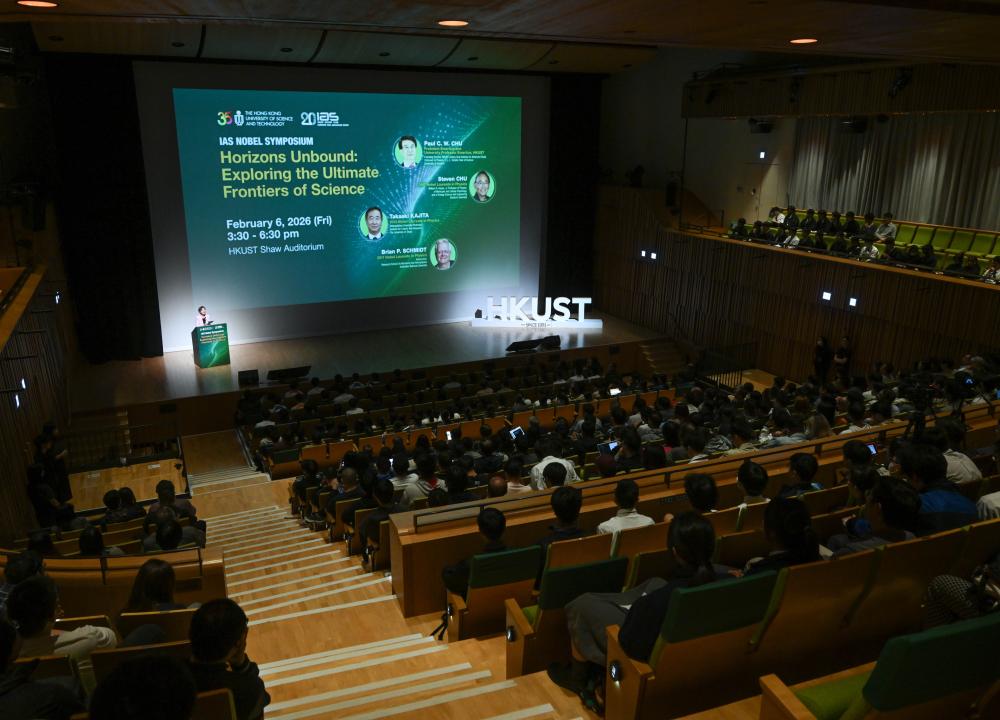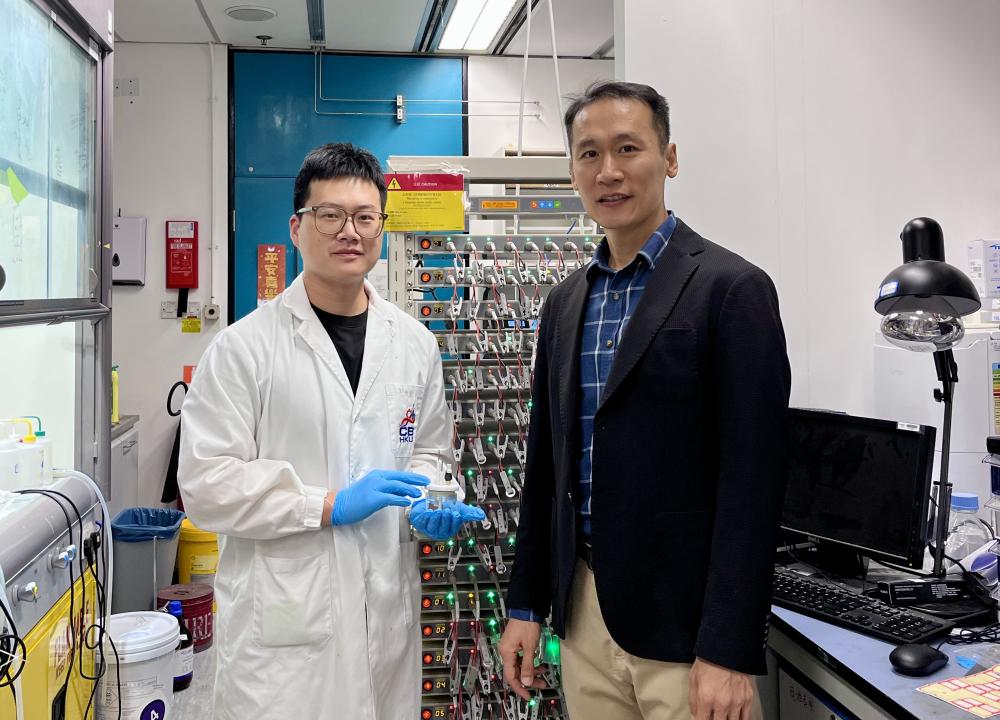Walking the Talk of Teaching
Happy classes make happy students.
The saying that “Happy classes make happy students” is not taken lightly by Prof. Kenneth LEUNG Wai-Ting, Assistant Professor of Engineering Education at HKUST’s School of Engineering. A three-time recipient of the Common Core Teaching Excellence Award, Prof. Leung is a believer in the transformative power of education that engages learners.
A “product” of the traditional teaching system in Hong Kong, Prof. Leung did not find studying particularly enjoyable during his formative years. However, his perspective underwent a significant shift when he pursued his further studies in Canada, where he unearthed the secret to the joy of learning. “We would sit on cozy sofas and engage in discussions during English classes. I never imagined that learning could be so enjoyable and relaxing!” Prof. Leung shared.
During his doctoral studies at HKUST, Prof. Leung was inspired by his PhD supervisor, Prof. LEE Dik-Lun, Professor Emeritus of the Department of Computer Science and Engineering at HKUST, to become a dynamic educator. With his study experiences in Canada serving as a catalyst, Prof. Leung became passionate about creating a happy learning environment for students, rooted in his belief in its potency to positively impact the next generation.
Flipping the classroom
In his award-winning course, CORE1231: Exploring Multimedia and Internet Computing, Prof. Leung implemented the innovative “flipped classroom” approach which requires students to watch interactive online video lectures with in-lecture quizzes before class. During class, the focus redirects to student-centric “What-you-see-is-what-you-get” (WYSIWYG) activities that captivate their attention, encouraging peer collaboration and the application of programming and computer science knowledge.
“Students can easily lose interest in the traditional classroom approach, especially for those who need more attention and guidance. Through the flipped classroom approach, students learn from their peers by engaging in discussions and hands-on group exercises, making learning more fun and accessible,” Prof. Leung elucidated.
By adopting the WYSIWYG activities, Prof. Leung ingeniously remodeled the traditional one-way lecture into a fun playground. For instance, in the “Hardware Component Investigation” exercise, students have the rare opportunity to dissect a desktop computer and unveil the hardware components inside. Hands-on activities like this immediately showcase the learning results, stimulating students’ interest and encouraging their continuous exploration.
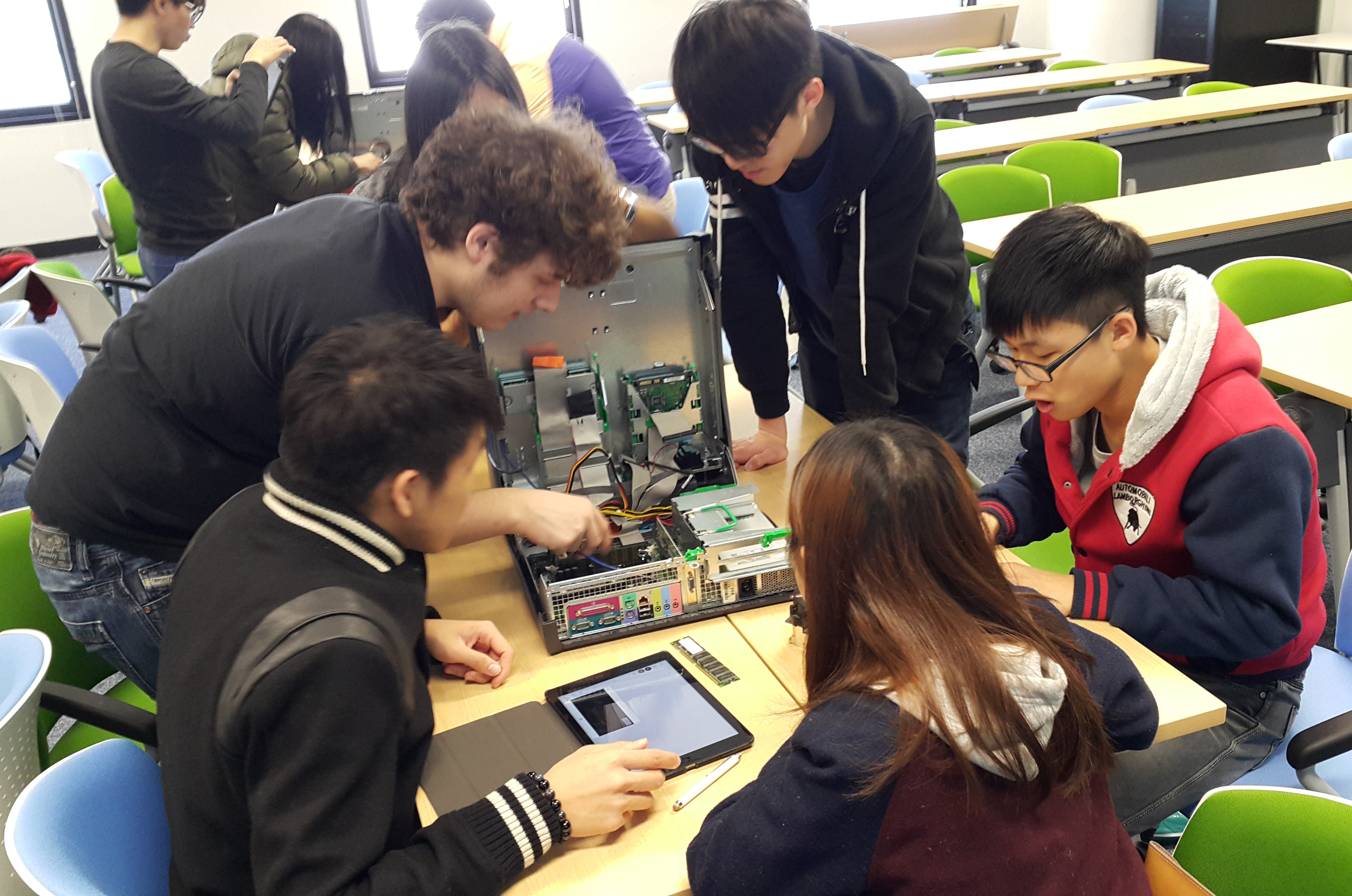
Timmy LAI Kit-Hoi and Phoebe CHAK Kwan-Yi, graduating students majoring in Biotechnology and Business, were both inspired by Prof. Leung’s class and decided to pursue a master’s degree in a computer science-related program after graduation.
“One of the class activities involved developing an Android game. Even though it marked my first foray into programming, it revealed my untapped potential and sparked my interest in computer science,” shared Timmy.
Phoebe echoed with excitement, “The course provided me with a delightful introduction to game coding. I am going to attend a summer exchange program in Tallinn, Estonia to further explore gamification applications!”
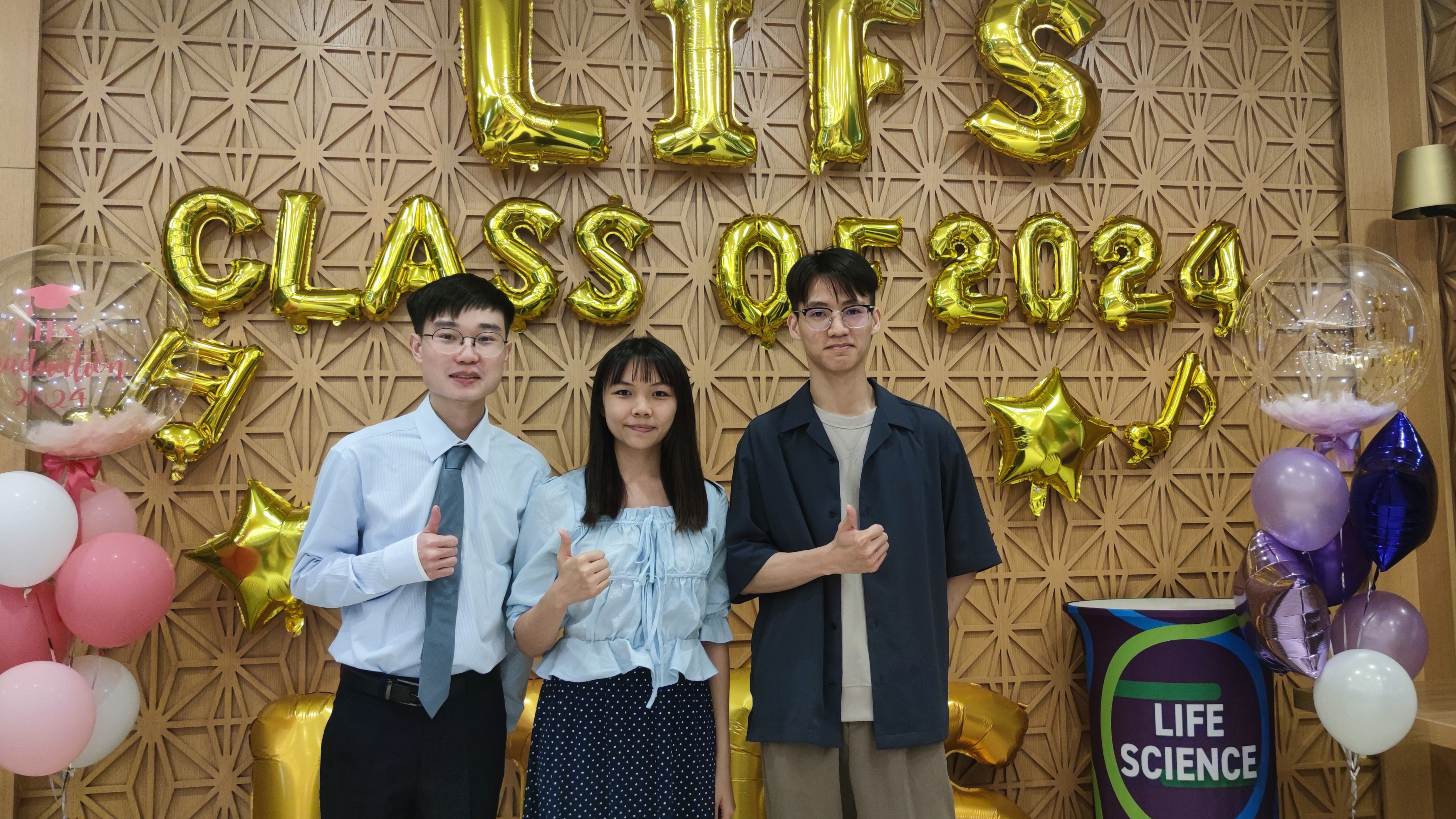
Inspire and be inspired
Beginning his teaching journey at HKUST in 2006, Prof. Leung counts building mutual trust and rapport with his students as his crown achievement. “I treat my students as friends,” Prof. Leung stated. With a smile, he said, “A positive teacher-student relationship can motivate students to fully engage in their learning, spark their curiosity, and foster their zest for exploring knowledge.”
Prof. Leung’s strategy to building a positive teacher-student relationship lies in his open-mindedness. He attributes the grooming of his quality to Prof. LEE Dik-Lun. “Prof. Lee was my supervisor when I studied my PhD at HKUST. He exemplified openness by granting me substantial freedom and never confining my research pursuits.”
Drawing inspiration from his supervisor’s take on student advising, Prof. Leung embraced an even more open-minded approach when he started teaching almost two decades ago. Actively seeking and valuing students’ feedback to enhance course design and delivery, he made an adaptation, one among others, in which he granted students the option to use their personal laptops for examinations. This decision came about after he learnt that some of his students felt more comfortable and performed better in the environment provided by MacOS. The emphasis was on assessing students’ ability to apply their knowledge effectively during exams, freeing the young ones from unnecessary odds stacked against them.
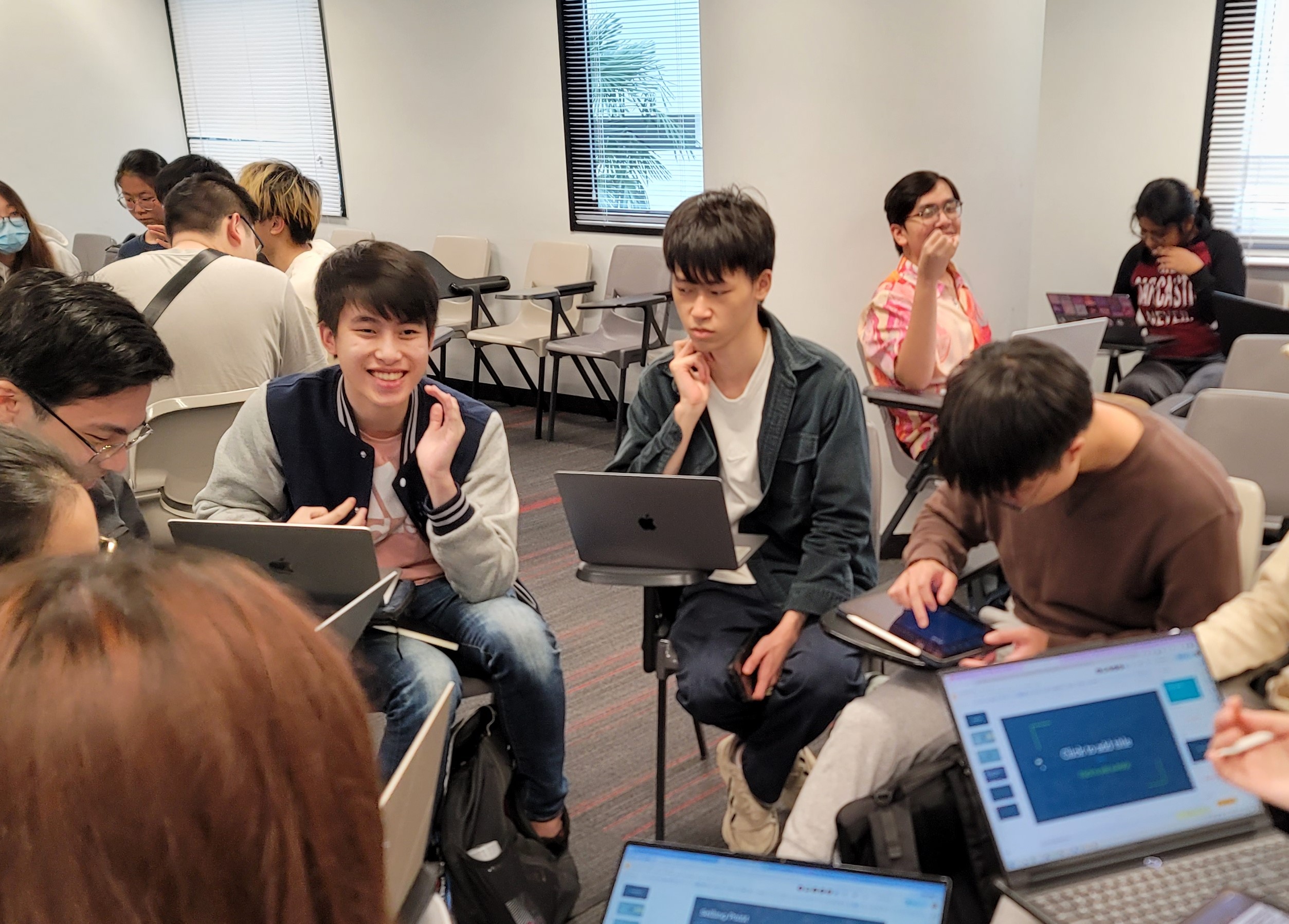
Junmo LEE, a year one engineering student who recently completed the course CORE1231, described Prof. Leung as a friendly and engaging teacher who consistently offers support beyond the course curriculum. “We approached Prof. Leung to serve as the advisor for a project under the Undergraduate Student-initiated Experiential Learning (USEL) Program. He gladly accepted the role and remained highly responsive to our questions via emails and Telegram.”
In addition to providing academic support, Prof. Leung also places a high priority on students’ mental wellbeing. To help students acclimatize to the new environment, which can be daunting to the unadjusted, he introduces a lot of group discussions and team projects into his classes. Yubeen CHANG, who is also a year one engineering student, recalled, “I had the chance to meet and develop close relationships with two senior students in my group. These connections have extended beyond the course, and they have become my mentors now.”
STEM education should be accessible to everyone.
Beyond his teaching at HKUST, Prof. Leung has also created seven Coursera MOOC Courses, building a reputation as the most prolific contributor in Hong Kong. These courses have benefited students in less advanced regions such as Africa. “STEM education should be accessible to everyone,” pinpointed Prof. Leung, speaking like the inspirational educator that he is, and continuing to flip learning experiences, an upside down world open to all.









